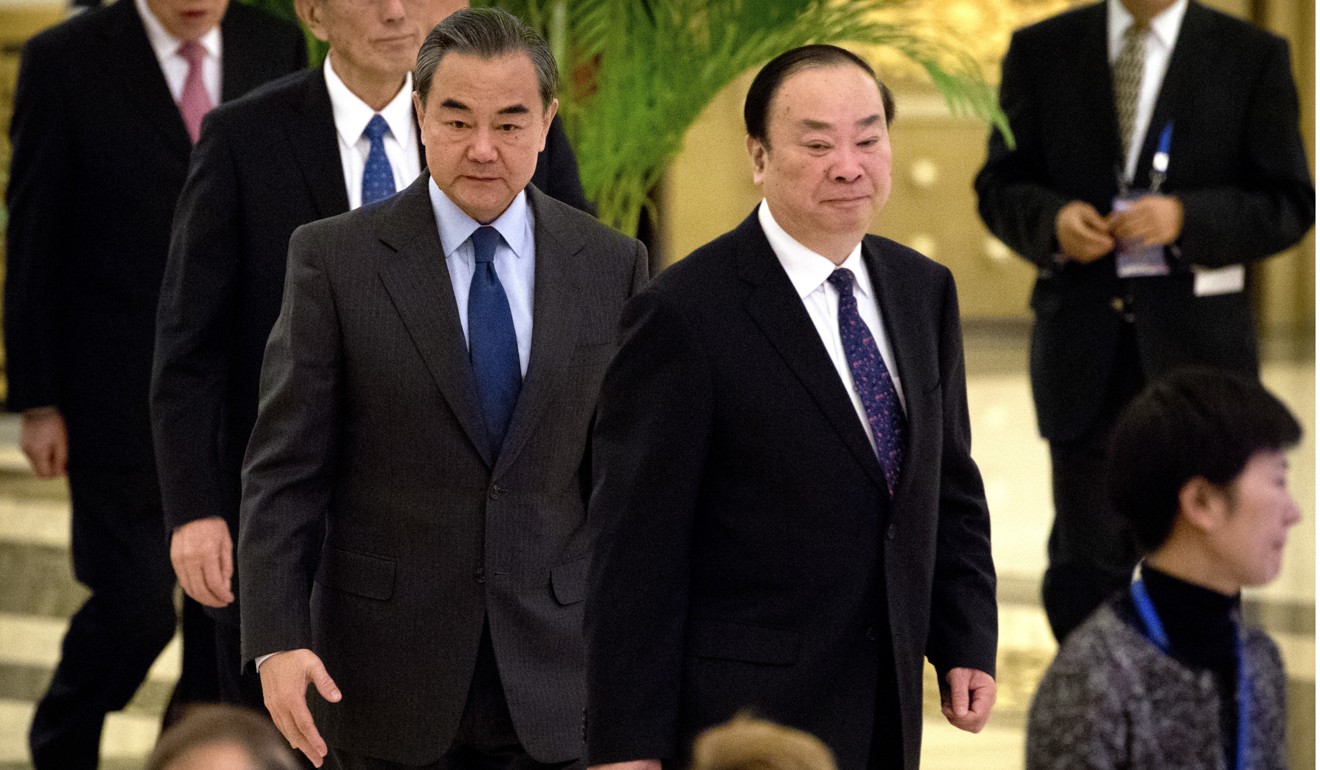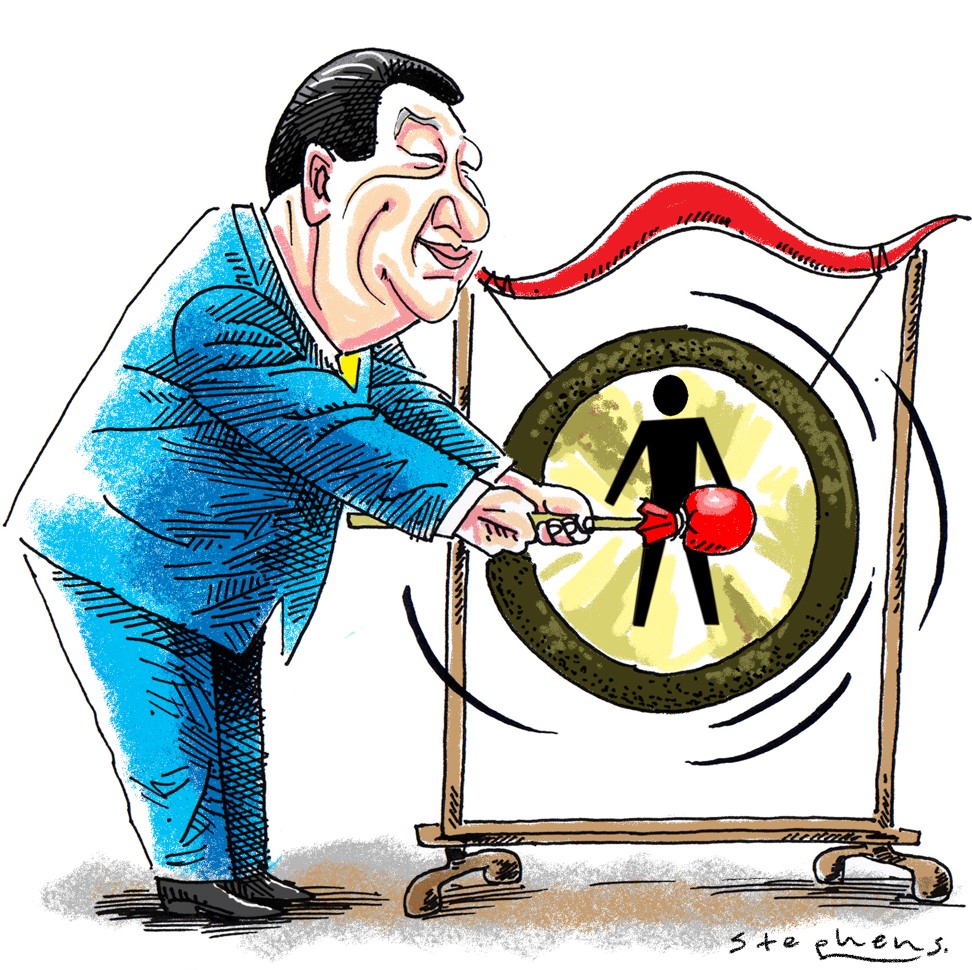
Beijing human rights forum shows Xi Jinping’s Chinese dream is ready to become the Asian dream
Peter T.C. Chang says China as the Asian economic superpower has the capacity to spread its grand vision of a common destiny across the region, and a jointly created set of human rights would help to allay socio-economic and civil-political concerns
Many of these countries are still developing, to be sure, but China stands out as the economic superpower. And the Chinese are eager to induct the rest of the “third world” into Beijing’s latest grand vision, that is, the quest for a community of common destiny, framed in terms of human rights development.
At the end of this inaugural global human rights forum, the Beijing Declaration was issued, reasserting China’s stance on the perceived conflict between socio-economic and civil-political rights. This promulgation signals an economically dominant China’s readiness to take on the West on the ideological front.
China hails year of ‘remarkable progress’ in human rights as US and EU warn situation is worsening
To some extent, it echoes the 1993 Bangkok Declaration on human rights and the ensuing “Asian Values” debates.
Today, however, instead of the Southeast Asians, the Chinese are the main protagonist. And, this time around, China may well possess the political clout and economic muscle to deliver and bring about substantive social and economical uplift to the developing world.
This South-South initiative needs to be placed within the broader context of China’s other endeavours, and the Chinese dream is one.
Watch: Xi Jinping explains why he proposed the Belt and Road Initiative
Just what is Xi Jinping’s ‘Chinese dream’ and ‘Chinese renaissance’?
The belt and road has the potential to reshape the dreams and livelihood of millions
In many ways, the Chinese dream is metamorphosing into an Asian dream.
Watch: China on how the Belt and Road Initiative is boosting the global economy
Due to excess capacity back home, Chinese transnational corporations have been chided for transplanting operations in a wholesale manner: relocating the Chinese workforce, materials and equipment into overseas ventures.
China must stay invested in upgrading the local human resources
This posits a twofold task for the Malaysian government: maintaining adequate employment, with the corresponding fostering of an employable skilled workforce.

As such, beyond sustaining a viable labour market, China must stay invested in upgrading the local human resources. In short, strategic and systematic transfer of technology is imperative.
One key motif underpinning the Beijing Declaration is poverty eradication. In Malaysia, this challenge is compounded by a widening wealth gap. And some of China’s investment may aggravate the disparity.
11 projects that show China’s influence over Malaysia
An often-cited example is the multibillion dollar Forest City development at the southern tip of the Malay Peninsula, bordering Singapore. Critics warn that the exclusive, self-contained commercial and residential resort-like mega project could create a colony of super-affluent foreigners, socially and economically disconnected from the rest of Malaysia. If it proceeds as designed, such an enclave will exacerbate the prevailing perception of wealth inequality.
China’s growing footprints, when planted indiscriminately, could also harm Malaysia’s diverse yet delicate social landscape.
That said, the Chinese world does possess a trove of cultural resources, including rich Islamic heritage, that can be deployed to cultivate and strengthen the bonds between China and a multi-ethnic, multi-religious Malaysia.
Watch: China finances 688km East Coast Rail Link in Malaysia through soft loans
There is a heightened expectancy that we are, at least in parts of Asia, on the cusp of an upward swing
Similarly, living in a pollution-free environment deserves to be enshrined as a basic human right.
There is no other entity more emblematic of humanity’s common destiny than Mother Earth. But our unique life-giving planet is under dire threat. Therefore, it is as much a moral obligation as it is a legal duty for us to conserve the natural world – for the sake of the present as well as future generations.
Human history moves in cyclical alternates between periods of peace and war, prosperity and poverty, progress and regress. Today, there is a heightened expectancy that we are, at least in parts of Asia, on the cusp of an upward swing towards a season of increased opportunities and growth.
Indeed, the Beijing Declaration and the attending quest for a community of common destiny is empowered by this newfound optimism, one that is not entirely unfounded. However, the pathway to actualisation is less than smooth.
Human rights in China under Xi Jinping ‘worst since Tiananmen crackdown’: Amnesty
For this reason, as the presumptive leader, China has to work in concert with the South-South countries, Malaysia included, to effectuate a comprehensive set of human rights, covering the gamut of socio-economic, civil-political, and environmental rights.
Tangible progress can then be made towards realising Xi’s latest grand vision, namely, the quest for a community of common destiny.
Peter T.C. Chang is a senior lecturer at the Institute of China Studies, University of Malaya, Kuala Lumpur, Malaysia

